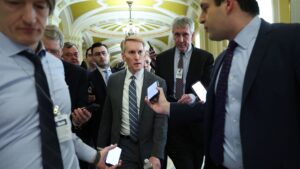CNBC’s Republican “Cage Match”
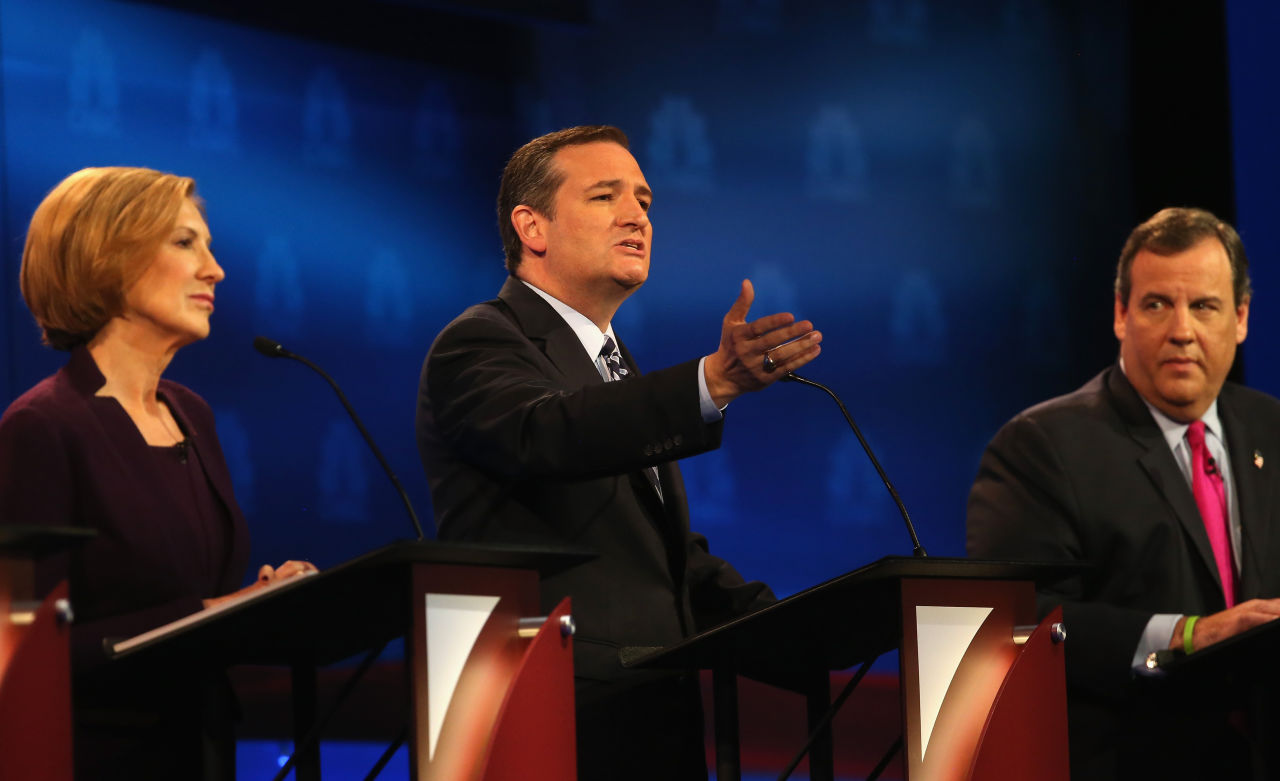
Source: hereandnow.wbur.org
On Wednesday, October 28th, the top ten Republican candidates took the CNBC stage, reminding viewers of the harsh hostilities these political debates can bring out. Over the past few years, many television networks have adapted the trend of leaning towards one of the aforementioned political parties, even though they rarely officially label themselves as such. CNBC leans closer to the Democratic side of the spectrum, while networks such as Fox are generally more Republican in nature. Although this was not the first time that a network of a primarily different political ideology hosted another party’s debate, it did not negate the palpable tension between the candidates and their moderators.
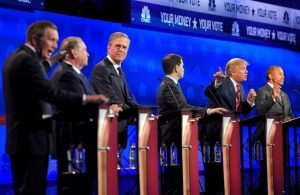
CNBC anchors John Harwood, Carl Quintanilla, and Becky Quick started off the debate by asking the question, “What’s your biggest weakness?”, setting the critical, judgmental tone between the moderators and the candidates, many of whom managed to somehow avoid answering while simultaneously insulting the Democratic party. This initiated a series of nasty exchanges between the anchors and the candidates.
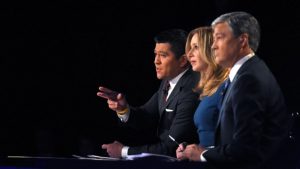
While the moderators did ask questions about many appropriate political issues, they also threw in the occasional offensive curveball, such as calling Donald Trump a clown, asking Ben Carson if he could do math when the questioner used statistics against him, and even prodding Jeb Bush about his decreasing popularity, despite new fundings. It was questions like these that caused some of the candidates to lash out in embarrassment and frustration, turning against each other. One prime example was Bush, who after being attacked about his popularity, took a surprisingly offensive stance against his old Floridian colleague, Mark Rubio, telling him “you have to show up” in order to attain the presidency.
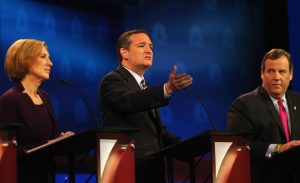
However, not all of the politicians bent under the pressure, some even showing admirable loyalty and respect for their fellow republicans. One of the more noticeable of these people was Ted Cruz. After, several of these thinly veiled attempts to unhinge the candidates, Cruz gave an unexpected answer to Quintanilla’s question about tax reform that some might consider the highlight of the debate. Although the question at hand had nothing to do with the tense atmosphere, Cruz took the entire time that he had to answer to formally address the overall ridiculous quality of the questions, in which he accused the moderators of making the conditions similar to a “cage match.” He also stated that the moderators are neglecting their duty to ask about the “substantive issues people care about.”
Although Cruz’s speech was certainly effective with the crowd, who roared in approval, the anchors seemed to be dispassionate; they continued and became more adamant in their comments, feeding off of the equally offensive Republican comebacks.
“Even in New Jersey, what you’re doing is called rude” Chris Christie said in response to the endless questions Harwood kept throwing over his words every time he talked.
Although the debate started out sour, contrary to the all time saying, it didn’t end sweet. In fact, it was at the end that Donald Trump said that no one wanted to go to this debate, much less for three hours, revealing that it was originally supposed to be a 3-hour debate but “in about 2 minutes, I renegotiated it so we can get the hell out of here,” much to the amusement of the crowd and protestation of the moderators, who immediately denied it.
After a night full of baits, insults, and blatant attacks, it seems to be less of a question of which republican candidate won and more of a matter of which political party won.



